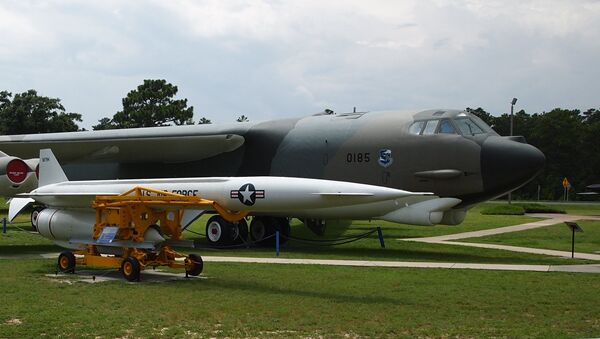Throughout the 1980-s Britain was in a grip of mass peace protests against the deployment of American cruise missiles tipped with nuclear warheads.
While publicly dismissing the Campaign for Nuclear Disarmament (CND) and other peace groups as "unrepresentative" of the British people, privately Thatcher and her Ministers were agonizing over the ways of "combatting" them, as the declassified files show. The Defense Secretary Michael Heseltine established a pro-government “peace” group to challenge CND’s "unilateralism", while the Secret Service was charged with "exposing" the CND’s foreign backers. They failed to find any. Apparently, they hadn’t yet mastered the art of creating "dodgy dossiers" at the time.
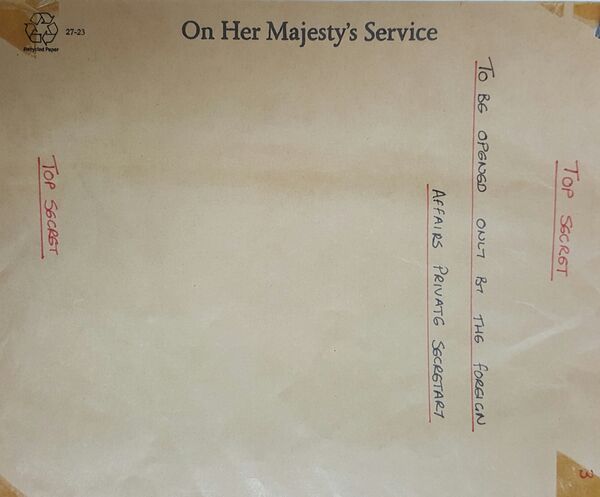
A handwritten note informed the Prime Minister of the failure: "you will remember asking me to find out whether Sir Robert Armstrong knew who was financing CND’s activities at Molesworth. The attached is his answer, though it does not answer the question where CND get their money from."
A MAJOR ELECTION PROBLEM
The CND was considered by the government to be a fairly responsible organization, but the famous peace women of Greenham Common (the US cruise missile site to the west of London) were branded "extremist".
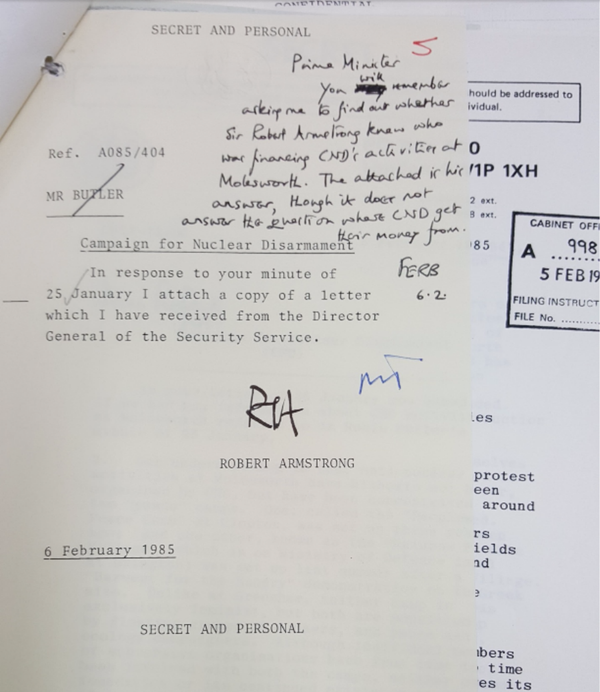
The repeated attempts by peace activists to breach security at bases housing nuclear weapons, like RAF Upper Heyford, ran the risk of a confrontation with armed US guards, and the Ministers were horrified by a prospect of the US military shooting British civilians on their home turf.
"The Home Secretary believes that an incident involving US firearms could be a major election problem", a handwritten note of 17 May 1983 advised Thatcher who was in the middle of her reelection bid.
Even warning the demonstrators of this mortal danger was deemed to be politically too sensitive.
"…it would be a mistake to make any public reference to the presence of armed guards in the next few weeks", wrote Home Secretary William Whitelaw on 17 May 1983. "The arming of security personnel in any circumstances is a potentially controversial issue. In this case there is the added complication that they are US personnel outside our control."
A flurry of minutes between the Home, Defense, Foreign Secretaries and the PM explored how to “tactfully” impress on the Americans that shooting a British civilian during the UK election campaign would be a very bad idea.
The Home Secretary cautioned: "I see the difficulty of signaling tactfully to the US authorities our expectation that firearms will not be used without good cause during the proposed blockade [of RAF Upper Heyford – NG] from 31 May to 3 June [1983]. But the timing, which could hardly be more sensitive [UK general election – NG], and the traditionally different approach to the use of firearms in law enforcement in the United States make me think that the possibility should, at least, be explored."
It appears from these discussions that the British Government did not feel to be in a position to take up the issue directly with the US military commanders stationed in the UK!
The Home Secretary suggested "a high level approach to the US Embassy who might [NG] be persuaded to emphasize the risks to the military commanders responsible for the base… The Foreign and Commonwealth Secretary would, no doubt, advise on whether [NG] some message might be sent and how it could best be delivered."
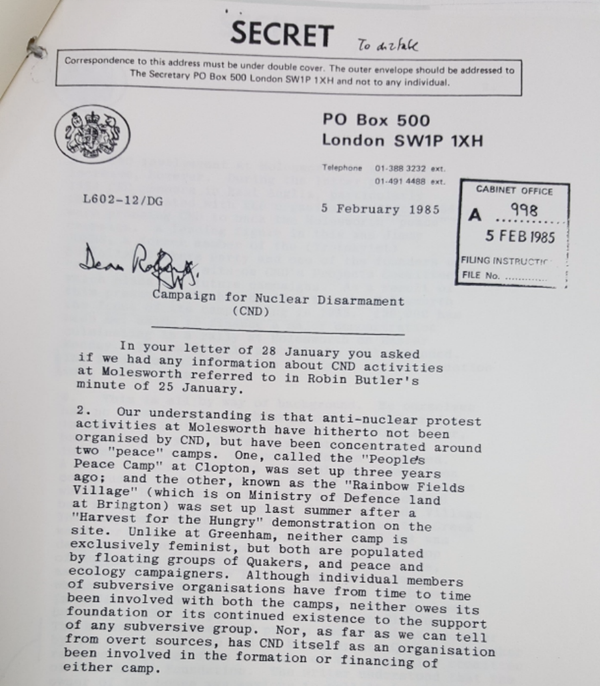
Not entirely sure that the Americans would heed the plea, the Ministers planned to insert a thousand or more UK personnel between the demonstrators and the US armed guards. On quite a few occasions there were two guards for every protester! The Ministers were also crunching numbers as to how many millions of pounds they would need to install electronic security systems around the bases. Security at UK military installations, even at those housing nuclear weapons, Ministers agreed, was inadequate.
TRAVELLERS, GYPSIES AND PEACE CAMPS
The best solution to the government’s worries would of course be the eviction of protesters from peace camps around the USAF/RAF bases. But there was a legal conundrum, as explained by the then Secretary of State for Transport Nicholas Ridley:
"First, there is our policy towards travellers [e.g. gypsies — NG]. The situation of these people and the Greenham Common protestors is, I believe, in law much the same. They both trespass on the highway. Yet in the case of travellers, we condone it."
This advice was not something Margaret Thatcher and other Ministers apparently wanted to hear, just like Tony Blair after them didn’t like the legal warnings about the Iraq invasion. In both cases the voices of reason were eventually silenced. As the declassified files show, Nicholas Ridley was put under serious pressure, not least by the Defense Secretary Michael Heseltine, to reconsider his position.
"ONLY MAJOR TRAGEDY CAN COMPETE WITH CND PICTURES"
Heseltine also took the lead in the "presentational" aspect of "combatting" the peace activists.
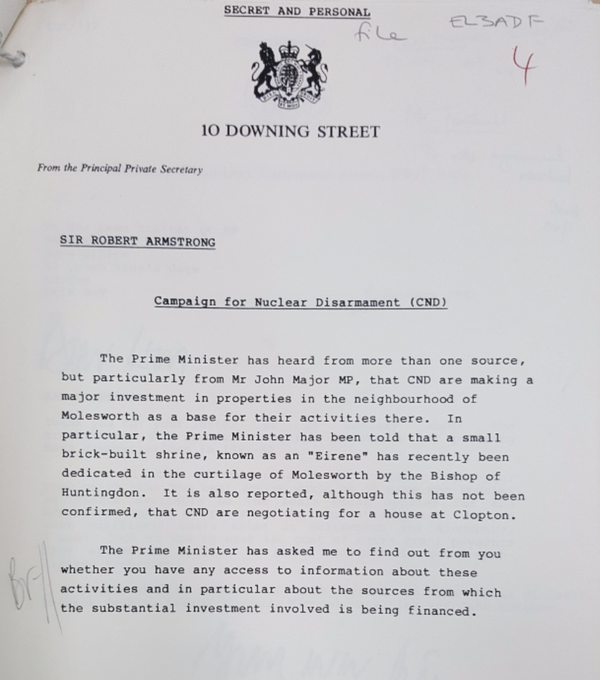
To counter the publicity of a series of mass protests across the UK planned by the CND for Easter 1983 he volunteered to make a speech at the Berlin Wall accusing the CND of working for the "forces of oppression" on the other side.
Heseltine’s visit to West Berlin was welcomed by his West German counterpart Dr. Woerner but he warned that it could provoke demonstrations in Berlin itself!
Foreign Office ministers and Thatcher’s own chief press secretary Bernard Ingham were equally in two minds about the validity of Heseltine’s counter-offensive:
"What we have to avoid is the charge that the CND’s Easter activities have the government rattled."
The CND’s Easter "peace offensive" will only "secure less airtime and have less impact if something more newsworthy in television terms occurs – e.g. (to be brutal) a North Sea blowout; an assassination attempt on the Pope, etc.", Bernard Ingham wrote in confidence on 17 March 1983.
"… If we accept that only a major tragedy can compete with CND pictures, Mr. Heseltine’s visit to the Berlin Wall should be seen more as a preemptive strike than a competitive event. In any case, I have serious doubts about Ministers being seen to be competing with CND on Good Friday, the day of Christ’s crucifixion."
"…It is also a day when there is not much sport," Thatcher’s chief press secretary lamented.
LET THE ROYALS DO THE BIDDING
To win the "battle of ideas" against the CND Ingham suggested to "feed into the BBC and ITN at an appropriate level the idea of getting cameras to film the various pursuits" like "pigeon, or whippet or tortoise racing (or whatever respectable minority sport we can confidently prove attracts more participants than CND demonstrating)."
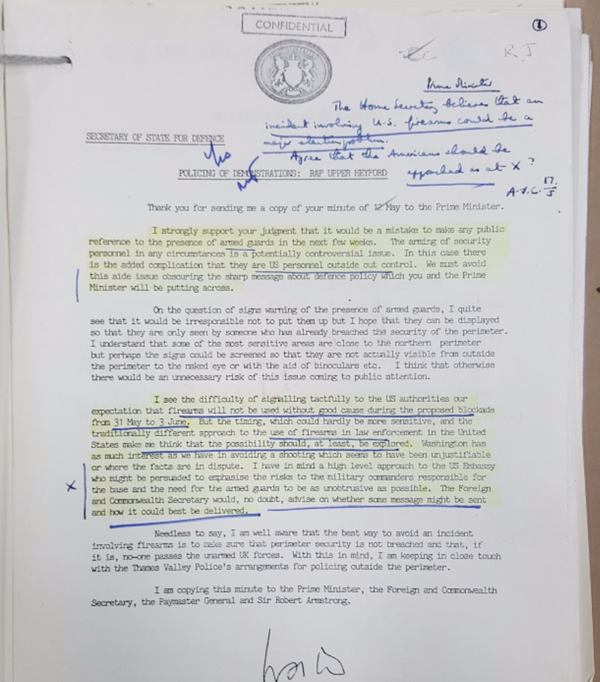
But what would really "do the trick would be press and TV pictures, for TV release on the evening of Good Friday and/or Saturday newspapers of Prince William in Australia."
Eventually, the UK government succeeded in reclaiming parts of the land occupied by the peace camps under the pretext of road improvements, and the Soviet-American arms reductions deals made US cruise missiles in Europe redundant.
In his notes of March 1983 Bernard Ingham wrote that “CND, if successful, contains not the seeds but the certainty of its annihilation”. CND, in its own way, did contribute to the success of arms talks in late 1980-s, but this did not lead to its annihilation. To the contrary, with the relapses of Cold War mentality in the British Establishment the peace movement appears to go through a revival.

